This is ALF EPISODE 654 Check out our lure fishing archives for more information on Yellowfin Tuna Fishing!


Kaspar Lenigas
Bluewater Fishing Addict
Kaspar fishes for everything from trout to marlin, but his knowledge of bluewater fishing is second to none- and that’s what we focus on in this episode. In fact, Kaspar shares three top techniques for targeting yellowfin tuna, as well as a bunch of closely held secrets on how to find the fish in all that ocean.
Kaspar’s Tips For Yellowfin Tuna Fishing
- It’s super important to understand yellowfin tuna behaviour, particularly in relation to currents. Many people are focussed on water temperatures and while temperature breaks and gradients can be important, Kaspar has found yellowfin both in relatively warm and relatively cold water. Using modern tools to find intersecting currents, upwellings and downwellings can save a lot f time, fuel and donuts.
- Yellowfin can show up in Southeast Queensland literally at any time of year, but the spring months often sees the best run of fish as they make their way closer to the coast for spawning.
- Moon phases can further intensify the connection between tuna behaviour and currents. Again, fish can be caught on any moon, but Kaspar often finds the days leading up t full and/or new moons to be more productive, whilst quieter periods often coincide with half moons.
- Contrary to popular belief, it isn’t always necessary to work a lure fast when targeting yellowfin tuna. Often when the fish are not feeding aggressively the use of smaller lures worked more slowly can really pay off.
- Yellowfin tuna usually swim into wind or current whilst feeding. Rather than motor into a school it is much better to stay wide and get ahead of the school and then drift back on the fish. Never approach a school from behind, often the fish on the surface are a small proportion of the school and a fish at the rear of the school will put entire school down if spooked. Watching the birds is a good way to tell which way the fish are moving, focus on the white birds such as terns and gannets as these tend to follow surface fish.
- It is usually more productive to cast or troll around the edges of a bust up than to cast right into the action. Also, keep casting in the general vicinity of where a recent bustup has occurred as there are usually good numbers of fish cruising around that can’t be seen.
- When fighting fish, position the boat so that the fish must swim across or into the current, making them plane up to the surface and reducing the duration and distance of runs.
Kaspar’s Tips For Trolling Yellowfin Tuna
- Yellowfin can be caught using heavy marlin tackle at times and will occasionally take a large lure intended for marlin. However, more consistent results come from going lighter and using smaller lures, specifically targeting yellowfin rather than hoping for a bycatch.
- 50 to 80 wide overhead reels with braid backing is a good option and pink or blue nylon leaders of around 150lb are Kaspars preference. With tuna’s soft mouths, Kaspar suggests setting the drag around 8 kilos so as not to rip hooks out during the strike. Let the tuna run initially and adjust drag as the fish goes deeper.
- Lures in the 6 to 10-inch range are favoured with deep diving hard bodies set close to the boat and bullet head skirted lures further back.
- Trolling speeds of 6 to 8 knots are perfect for hard bodies and skirts but slowing down to 3 to 4 knots and presenting smaller lures when tuna are fixated on smaller bait. It’s best to circle the fish and try to cross lures in front of them when trolling, rather than motor through the school.
Kaspar’s Tips For Casting To Yellowfin Tuna
- Casting stick baits and poppers for yellowfin tuna is effective and popular any time they are found rolling about on the surface. Seeing working fish and birds is a good indicator that it’s the right time to switch from trolling to casting.
- Positioning the lure in front of the fish is critical. Understanding the direction of the tuna school and cutting them off in their feeding lane increases the chances of a successful cast. Don’t cast into the middle of a big bust-up but strategically place the lure where the tuna are actively targeting individual prey.
- When it comes to casting gear, Kaspar recommends larger setups, such as an 18,000-size spin reel with 100 pound hollow core braid and 150-pound leader. Lure size ranges from 180 to 230 millimetres, with a preference for long, skinny profiles resembling saury or flying fish.
- The unique action required for poppers involves a stop-and-go technique. Kaspar finds that big tuna often prefer a slower presentation, allowing them to line up the attack from below.
- Kaspar stresse the importance of using parabolic rods for comfortable and effective fights. An eight-foot to eight-foot-six rod with a rating around PE8 is ideal for tuna casting, the parabolic curve avoiding excessive pressure on the angler.
- Reliable knots are vital for topwater fishing. Kaspar favours the PR knot for line to leader connections, due to its strength and uniformity. He suggests using either a swivel or a solid ring connected to a quick-change split ring for efficient lure changes.
Kaspar’s Tips For Jigging Yellowfin Tuna
- The best tuna fishing starts in 500 m or more of water, so trolling and casting are only effective when the fish are near the surface. Jigging adds a new dimension, allowing anglers to target yellowfin when they are down deeper in the water column and turning slow days into red hot fishing events.
- Full details of finding and targeting deeper water fish are available in the ALF PLUS edition of this episode, which is available to Team Doc Lures members. Please consider joining the team and supporting the podcast today!
Related Episodes
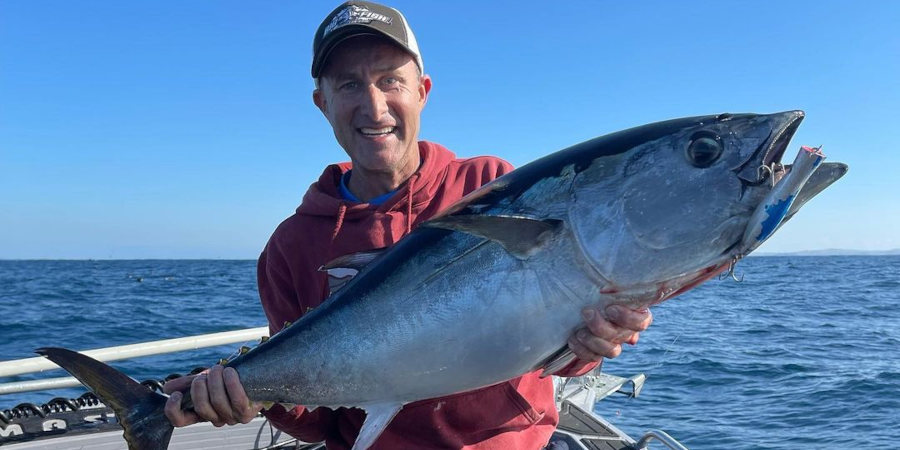
Episode 622: Southern Bluefin Tuna On Poppers With Lee Rayner
As the southern bluefin tuna fishery continues to improve off the Victorian coastline adventurous anglers are finding more and more ways to target them. In today’s episode Lee Rayner shares his strategy for targeting the mighty bluefin on cast surface poppers.
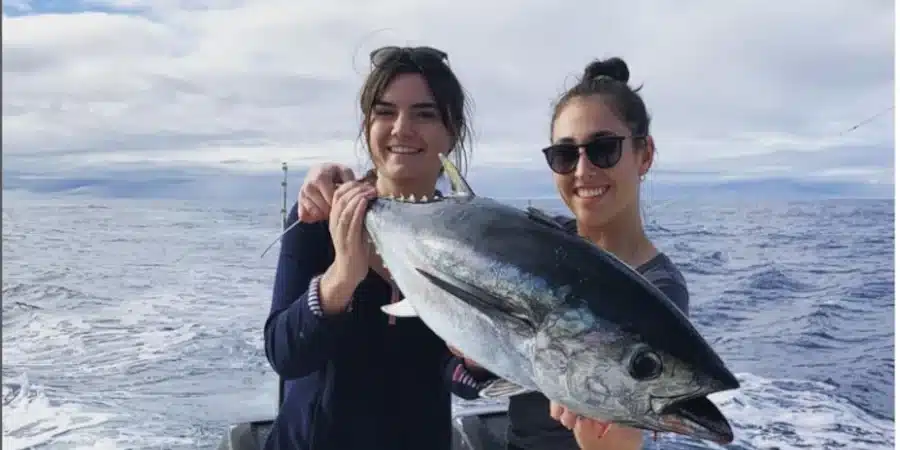
Episode 608: Southern Bluefin Tuna With Indy Thompson
If you’re looking for some tips for chasing southern bluefin tuna you’ll find today’s guest, Indy Thompson, to be very generous with her impressive knowledge. Tune in as Caitlin picks up some great tips for targeting this species.
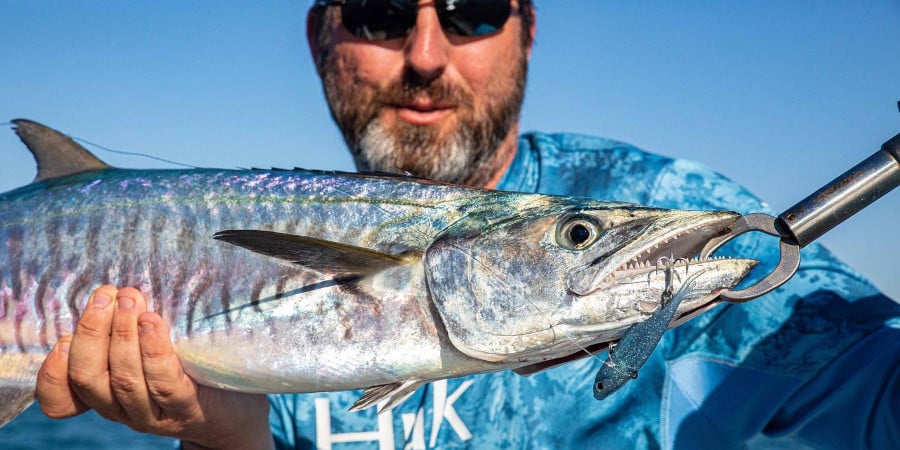
Episode 547: Fishing Around Exmouth In Spring With Steve Riley
Every time I interview Steve Riley about fishing the Exmouth area I get blown away by the opportunities on offer, but I think this interview could be my favourite so far. Steve spills the beans on five land-based fishing spots that are available to visiting anglers during spring. In the course of the conversation we cover everything from bream and whiting to tuna, reef species and pelagics including monster GT from the beach. What a destination!
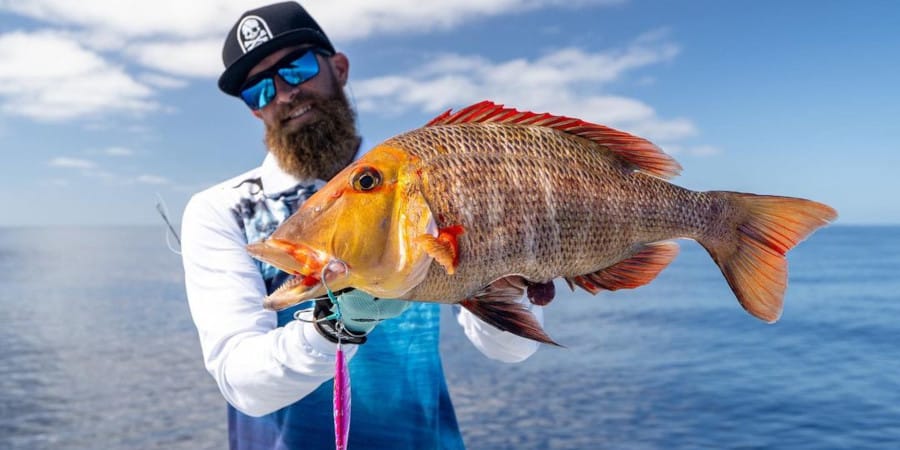
Episode 529: Mackay Slow Pitch Jigging With Mick Hassett
My Slow Pitch Jigging technique is something I’ve been working on lately – I’m on a steep curve. Not Mick Hassett though, he’s a machine with the SPJ and in today’s interview he shares a ton of pro tips.
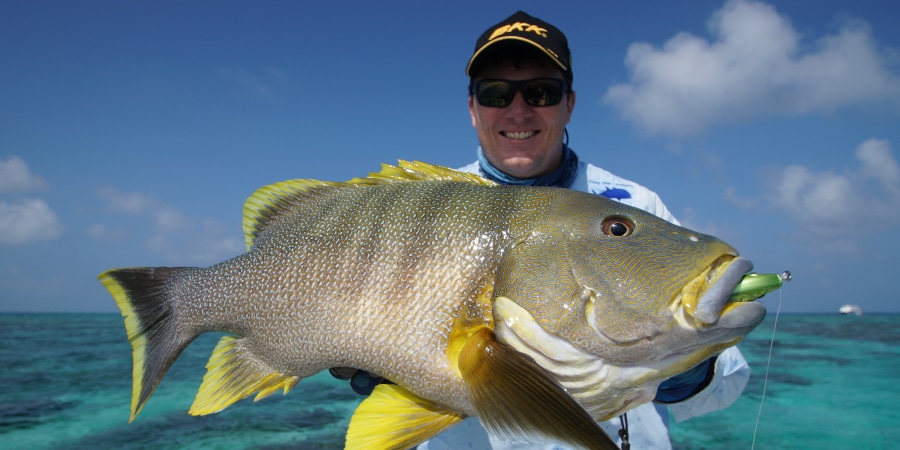
Episode 525: Five Best Queensland Sportfishing Destinations With Damon Olsen
Damon Olsen has spent over 20 years exploring every corner of every reef between Fraser Island and the tip Of Cape York. In today’s episode he walks us through the five destinations he’d really like to go back and fish all over again!
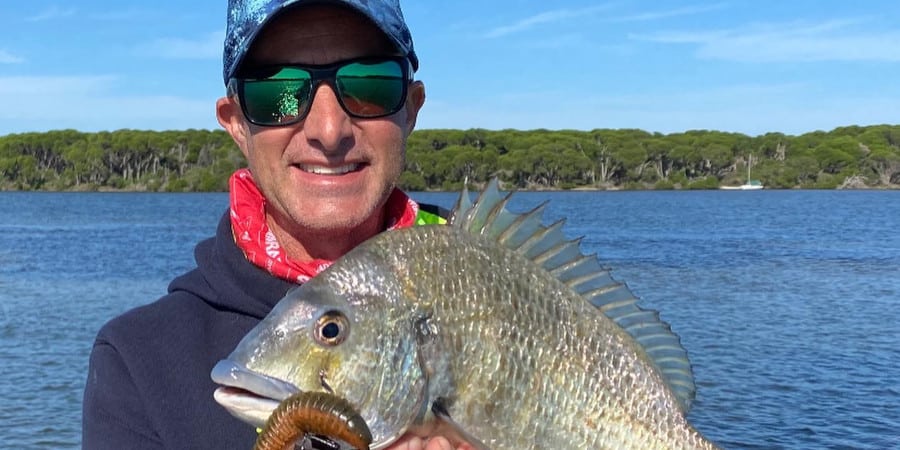
Episode 513: Five Best Winter Fishing Options For Melbourne With Lee Rayner
Looking for winter fishing options around Melbourne? Lee Rayner reckons southern fishing can be spectacular in the cooler months.
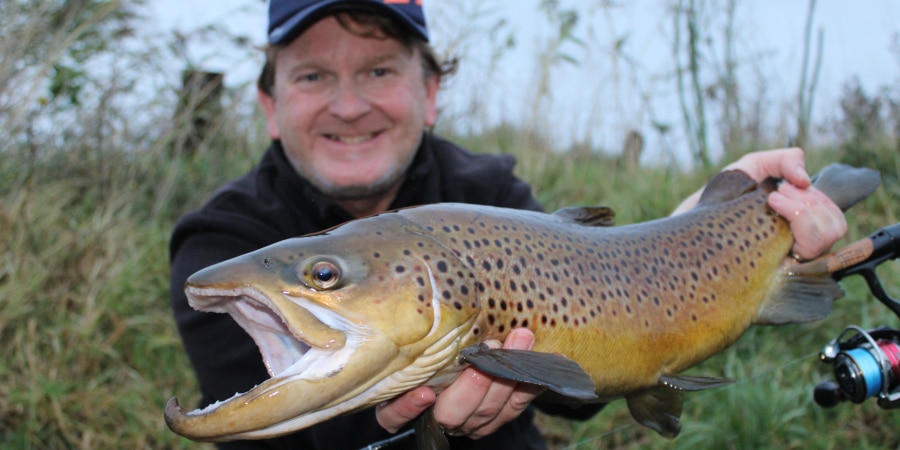
Episode 510: Five Winter Fishing Spots Around Warrnambool With Mark Gercovich
Mark Gercovich SW Vic Fishing Personality And Journalist Former tournament angler, Mark Gercovich is a prolific fishing writer who has penned numerous articles for Victoria Fishing Monthly, Fishing World, Freshwater Fishing Australia, Kaydo Fishing World, Hooked Up...
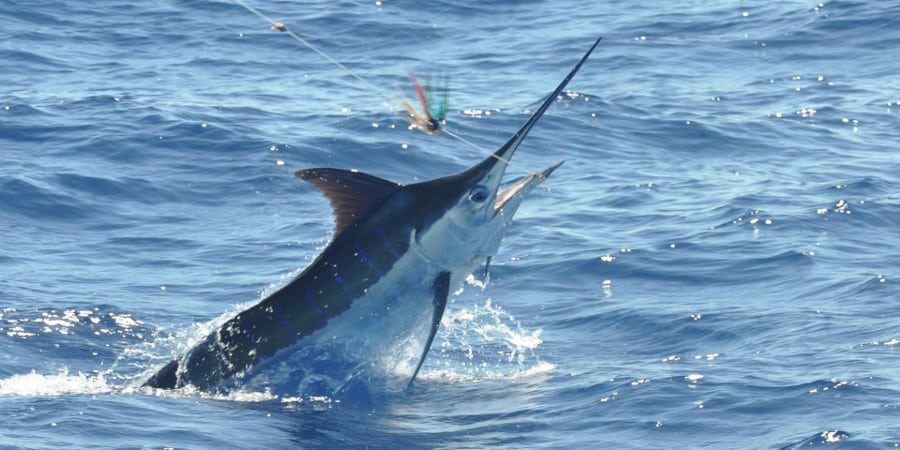
Episode 488: Blue Marlin With Glen Booth
Blue marlin are a species that captures the imaginations (and hearts) of game fishers around the world. Glen Booth has spent a lifetime chasing them!
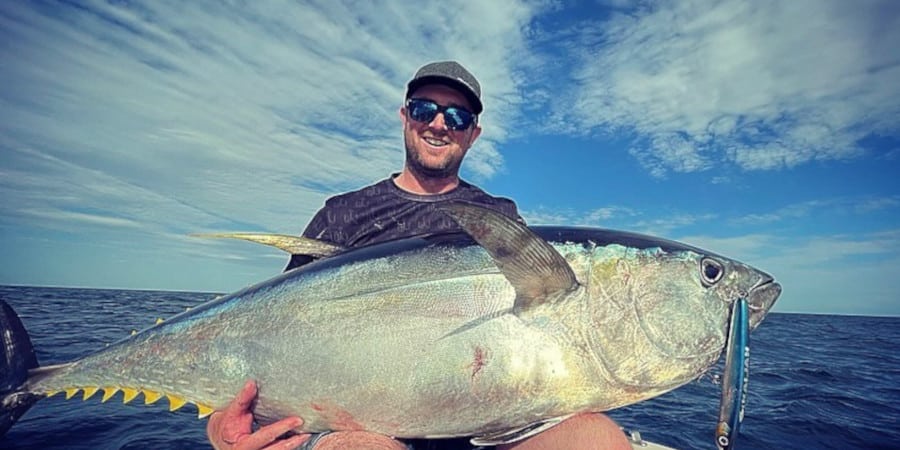
Episode 424: Shoalhaven Yellowfin Tuna With Simon Pender
The NSW South Coast has enjoyed the return of yellowfin tuna in recent years, opening opportunities for guys like Simon Pender to throw topwater offerings at them with great results.
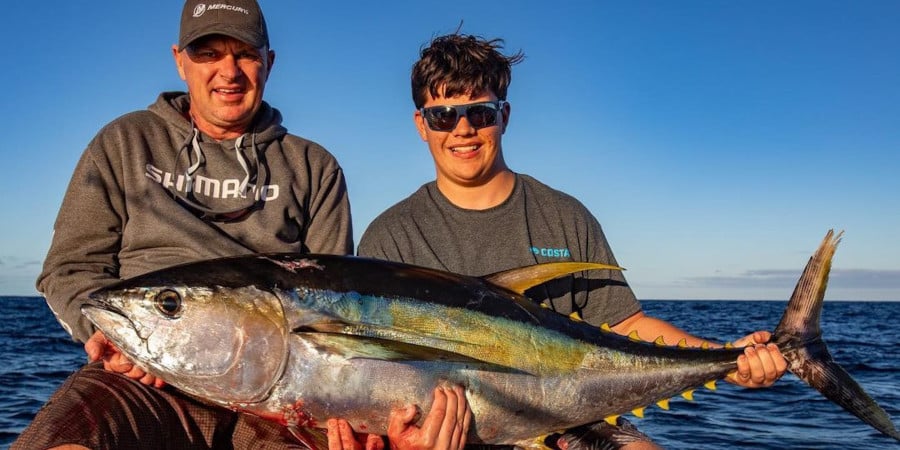
Episode 388: Sydney Tuna Fishing With Al McGlashan
This is ALF EPISODE 388. Check out our archives for more information on yellowfin tuna fishing and Sydney Offshore Fishing SpotsAl’s Sydney Tuna Fishing Tips La Niῆa weather patterns, such as we’ve experienced in 2021, tend to push yellowfin tuna further down the East...


0 Comments